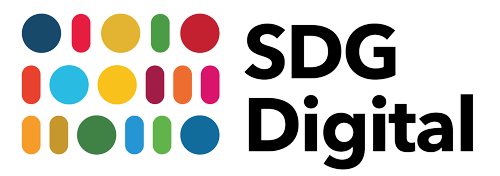
Mobile Innovation Hub: Improving job quality to enhance livelihoods


Digital platform economies can create employment, improve job quality, and enhance people’s livelihoods. As we explore digital solutions to achieve the Sustainable Development Goals, we share the perspective of Tarek Chelaifa, Senior Manager at the GSMA Foundation.
Tell us about your digital solution to accelerate progress on the UN Sustainable Development Goals (SDGs).
Together with the Tunisian government and the local digital ecosystem, GIZ Tunisia and the GSMA Foundation continue to collaborate on the development of mobile digital solutions and the promotion of the platform economy across various sectors since 2020, with specific emphasis on creating decent employment, improving job quality and thus livelihoods.
The primary aims of the Mobile Innovation Hub Tunisia are to:
- Stimulate the mobile platform economy as a new business model across relevant sectors in Tunisia, connecting supply with demand and, in doing so, creating decent employment and improving job quality as a lever for enhanced livelihoods.
- Support the Tunisian government and society in the recovery phase after the COVID-19 pandemic and build their resilience to future crises.
- Support Tunisian mobile operators and other ecosystem partners in reducing the mobile internet usage gap.
Which organization or group is behind this digital solution?
The Mobile Innovation Hub is supported by the special initiative “Decent Work for a Just Transition” (Invest for Jobs) of the German Federal Ministry for Economic Cooperation and Development (BMZ) and implemented by the Digital Transformation Program of the GIZ Tunisia in partnership with GSMA.
The partnership is leveraging the expertise of the mobile telecommunications industry association GSMA in mobile-driven solutions and the international cooperation acumen of German cooperation agency GIZ (Deutsche Gesellschaft für Internationale Zusammenarbeit GmbH) to birth a transformative solution.
How can your digital solution help put the SDGs back on track?
The Mobile Innovation Hub promotes the digital platform economy and digital skills. Digital platforms offer new opportunities for economic growth and job creation across various sectors, creating the potential to contribute to the achievement of the United Nations Global Goals, or SDGs, and in particular Goal 8 — to promote inclusive and sustainable economic growth, employment and decent work for all.
The Mobile Innovation Hub aims to reconcile productivity with improved working conditions by leveraging mobile technologies.
Our objective is to:
- Boost employment opportunities by serving as a conduit between jobseekers and employers in platform economies to create a more attractive working environment.
- Ensure decent working conditions in collaboration with the International Labour Organization (ILO), whose SCORE (Sustaining Competitive and Responsible Enterprises) experts channel resources and knowledge to guarantee decent workplaces; and by promoting dialogue between major digital platforms on how to advocate for a suitably adapted regulatory framework.
- Increase digital skills so that people at risk of digital exclusion – such as women, those living outside the main cities, those working in the informal economy – could reap the benefits of digital platforms, for instance to earn a living by selling goods, doing freelance work, and so on.
Which SDGs does your project aim to address, and why?
Our project primarily aims to address Goal 8: Decent work and economic growth. Based on the profound understanding that economic growth is pivotal to achieve higher living standards in emerging economies, the Mobile Innovation Hub supports the development of mobile digital solutions and the acceleration of the platform economy model across various sectors.
The emphasis on decent work resonates with our dedication to guaranteeing workplaces that are safe, respectful, and fair for all in an increased digital context.
Several reasons underscore our focus on Goal 8:
- Magnitude of unemployment: Even before the pandemic, in 2018, the ILO indicated that more than 190 million people were jobless worldwide. Our solution aims to bridge the gap between jobseekers and employers, addressing this issue head-on.
- Workplace conditions: Decent work environments are not merely about productivity. People’s well-being and dignity are intertwined with their workplace conditions.
- Economic resilience: Global debt had surged to unprecedented levels before the pandemic. Promoting sustainable business practices and economic activities ensures resilience, especially in turbulent times.
- Multiplier effect: Addressing Goal 8 has a cascading effect on several other SDGs. By fostering economic growth and promoting decent work, we indirectly support Goal 1: No poverty, Goal 10: Reduced inequalities, and Goal 3: Good health and well-being. A World Economic Forum report on sustainable businesses and better profit margins, for instance, showcases how economic prosperity can be intertwined with sustainable practices that benefit society at large.
In essence, our commitment to Goal 8 is not just about numbers or economic indicators. It’s a pledge to elevate the human experience, promote equitable growth, and pave the path for a sustainable and inclusive future.
What are the greatest challenges or risks you have faced in rolling out your digital solution for the SDGs?
Tunisia’s digital platform economy is at a nascent stage and offers opportunities from a socio-economic standpoint. However, there are barriers in terms of wider adoption.
These include:
- Lack of efficient e-payment infrastructure, and therefore usage, as well as efficient logistical infrastructure.
- An insufficient regulatory framework to promote digital jobs and structure the freelance and gig economy with guarantees for workers’ security and well-being.
- Low digital literacy. Not everyone is familiar with the benefits and risks of digital platforms, so training and onboarding become crucial. Bridging this gap is a challenge. According to GSMA statistics, the usage gap impacts approximately 41 per cent of the Tunisian population.
- Cultural barriers, with traditional employment practices in some regions potentially conflicting with decent work conditions, especially where the informal sector is prevalent.
- The need for data to better understand the conditions for digital platform workers.
What are the advantages of joining forces with the International Telecommunication Union (ITU), the United Nations Development Programme (UNDP) and other partners to advance digital solutions for the SDGs?
Collaborative efforts with leading global entities magnify our capacity to generate transformative changes. We gain through shared knowledge, extended reach, resource pooling, and an amplified voice.
Our partnership with ITU and UNDP fast-tracks our progress by providing invaluable insights. Joint initiatives often use resources more effectively, as highlighted by GIZ’s approach, and optimize project delivery.
Collaborations often achieve stronger advocacy and innovative solutions, in the spirit of SDG 17: Partnerships for the Goals.
GSMA Director General Mats Grynard presented this solution for better digital jobs and livelihoods during the SDG Digital event at UN Headquarters on 17 September.
The Mobile Innovation Hub is featured as a digital solution for SDG8 (decent work and economic growth) in the SDG Digital Acceleration Agenda, prepared by ITU and UNDP with knowledge partner Boston Consulting Group and support from the Inter-American Development Bank (IDB).

Image credits: GSMA
(Updated 18/09/2023)
